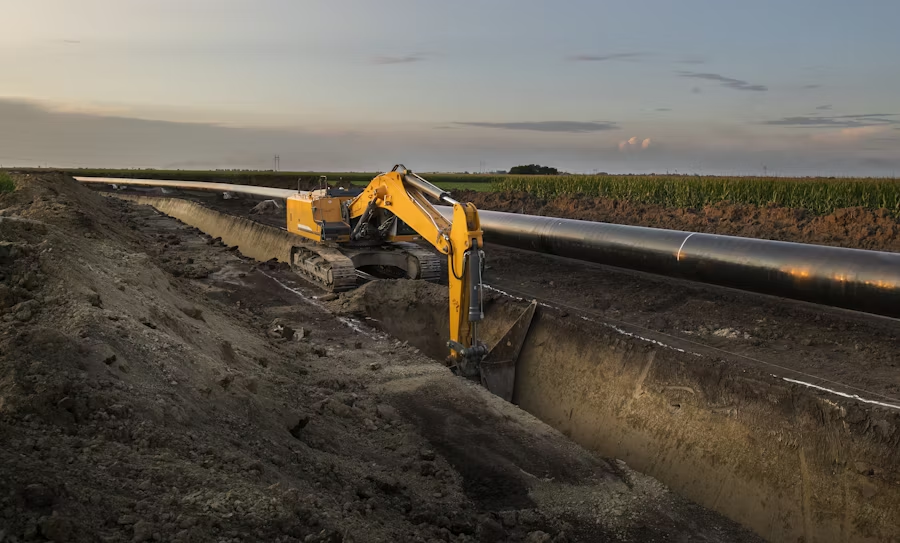No sooner did a freak accident on a Singapore Airlines flight kill a passenger and injure dozens of others, seven critically, than the vultures swooped on the wreckage to blame “climate change”. For instance Canada’s state-funded CBC with “Climate change is making turbulence worse, although deaths are still rare, experts say”. It’s not the experts saying deaths are rare. That fact is public knowledge. The experts who say are saying climate change makes turbulence worse, journalists say. And if you say otherwise, get ready for the experts to wave the threat of a lawsuit at you.
According to the CBC:
“From 2009 through 2018, the U.S. agency found that turbulence accounted for more than a third of reported airline accidents and most resulted in one or more serious injuries. And it’s likely only going to get worse due to climate change, climate and aviation experts have noted. There is strong evidence that turbulence is increasing because of climate change, [professor of atmospheric science at the University of Reading, U.K., Paul] Williams said, citing his own research that severe clear-air turbulence in the North Atlantic has increased by 55 per cent since 1979. ‘Our latest future projections indicate a doubling or tripling of severe turbulence in the jet streams in the coming decades, if the climate continues to change as we expect,’ he said.”
What? How would anyone know how much turbulence there was in 1979? And how about 1939? How would you begin to find out? This stuff doesn’t even show up on modern radar. There is no historical data worth anything. But what particularly struck us was that we had recently praised Williams and co-author Joel Tenenbaum for their cautious approach to a topic where the data are very limited.
They had published a study in 2022 based on 18 years of data showing that climate change was making air turbulence worse. Which then got hyped madly as usual, as if air travel were in fact becoming more dangerous when it is not. (And an alert reader notes that, infuriatingly, a 2023 paper on the topic by Williams and three others used the RCP8.5 scenario.) But then in 2024 the authors, to their credit, wrote to the journal that published their research saying when they added in three more years’ worth of data the trend disappeared.
In the Free Press journalist Rupa Subramanya observed, in a piece entitled “Stop Making Plane Turbulence About Climate Change”, with regard to Williams’ retraction of his earlier claim:
“As is often the case – whether the subject of a study is vaccines or mental illness – the retraction received far less attention from the press than the original claim.”
What’s more, she pointed out:
“Williams’ research is almost entirely focused on clear air turbulence over the North Atlantic. Can it really offer insight into the Singapore Airlines incident? Pilots aren’t so sure. Mark Hofmeyer, a Qantas pilot and vice president of the Australian and International Pilots Association (AIPA), told journalists he believes that thunderstorms – which cause ‘convective turbulence’ – were the likely cause of the incident, rather than ‘clear air turbulence.’ David Evans, a Qantas pilot who spent years flying over the Bay of Bengal, stated that turbulence is common in the area with the arrival of powerful monsoons at this time of year.”
But never mind. It’s climate change, everybody knows. And it won’t do to challenge the narrative, so as Roger Pielke Jr. notes, Paul Williams is now denying (see this thread) that the study was “retracted”, claiming the “accusation has caused me a great deal of distress” and snarling of Subramana’s piece:
“The defamatory and factually incorrect article has been shared widely by the usual suspects @BjornLomborg, @RogerPielkeJr, @RyanMaue, etc.) but also by @revkin, who should know better.”
Defamatory? Them’s suing words, which were backed up by a subsequent hint by Williams that he might follow the example of Michael Mann and file a lawsuit. As Pielke Jr. commented:
“Climate scientist appears to be threatening to sue a journalist for reporting views contrary to his own/ This is wild and wacky 😎/ But a natural follow-on from Mann-Steyn...”
Williams then snarled at “Roger” that “I thought you were better than that” to which Pielke Jr. retorted “The article said a ‘claim’ was retracted, not a ‘paper’ Which happens to be true”. But Michael Mann has warned his colleagues against providing “fodder” to “skeptics” and people in the field know that if you like your career in climate science it’s wise to heed this advice so look for Williams to get something out in a hurry flogging the turbulence-climate-death narrative to restore his standing with the cool kids.
A lack of supporting data shouldn’t pose any obstacle. The CBC says:
“Other recent research published in Nature Climate Change shows climate change is distorting the jet stream, making the powerful winds in the upper atmosphere even faster. ‘Based on these results and our current understanding, we expect record-breaking winds,’ Tiffany Shaw, a professor of geophysical sciences at the University of Chicago, said in a news release last year.”
Distorting the jet stream. Record-breaking winds. And if the models don’t cooperate just keep up the hand-waving. As a lurid “Today” news segment expressed it:
“so-called clear-air turbulence, often appearing close to the jet stream, is very difficult to predict and researchers say climate change has already made wind shear much stronger.”
So is it very difficult to predict, or dead simple? Or are you mixing two things up because you’re a journalist with a degree in journalism? What is “wind shear” anyway? Well, a piece in Scientific American originally in The Conversation says:
“Wind shear is defined as the change in wind speed, wind direction, or both, over some distance.”
Oh, and climate change has made it “much stronger”, has it? All of it? Everywhere? Even the breeze over the lake? Because it too is a change in wind speed, wind direction, or both over some distance.
The more you know about these things the less you believe the press. Including because when there was a 12-year gap in major hurricanes making landfall in the United States, from 2006-17, they assured us that stronger wind shear due to climate change was actually making hurricanes less serious. For instance the Ottawa Citizen on July 9, 2008 (sorry, kids, no online version):
“a study by the agency [NOAA] suggests the extra heat will indeed pump more energy into the storms, but will also build up a phenomenon known to limit the storms: wind shear”.
Two years later NBC opined that:
“Top researchers now agree that the world is likely to get stronger but fewer hurricanes in the future because of global warming, seeming to settle a scientific debate on the subject. But they say there’s not enough evidence yet to tell whether that effect has already begun.”
Then Katrina landed hard in 2017 and gosh, the herd of independent minds pivoted neatly 180 degrees. Recently National Geographic went: “Although climate change is increasing the energy in the atmosphere, it’s also expected to reduce wind shear.” And Yale Climate Connections in 2019 conceded that models had said wind shear would get stronger and reduce storms back when there were fewer storms. But once they returned in force, well, the settled science explained whatever the heck just happened:
“Using 21st-century climate model projections, a more recent study led by Mingfang Ting of Columbia University concludes that human-caused warming may lead to a weakening of disruptive vertical wind shear during active Atlantic hurricane cycles.”
Then a plane had a freak accident and it got stronger again. Due to that blasted Protean climate change.
By the way, that Citizen article also conceded that “It’s a topic over which scientists disagree sharply, partly because the era before satellites has left an incomplete weather record.” Yeah. To put it mildly.
True, the United States has good records of stuff that actually blasts its way ashore, and their records going back over 100 years show… no change in the frequency or intensity of hurricanes making landfall. Which doesn’t mean there hasn’t been a big increase in the frequency or intensity of storms way high up in the sky (the Singapore Airlines turbulence hit around 37,000 feet), where nobody has any records worth the wind they blew in on. But it certainly doesn’t mean there has been. Only the computer models think so, and they were told to.



As anybody who has ever had to write a term paper knows, if you cannot dazzle them with your brilliance, baffle them with your bullshit!
Planes getting hit with "wind shear"" down droughts" or other weather events, more than before.
I say it is numbers game. How many flights crossing oceans or otherwise in 1939 compared to 2024.
I am convinced, we hit more turbulence in 2024, nothing to do with climate